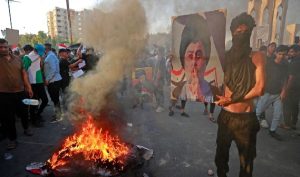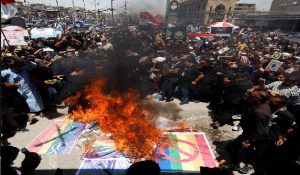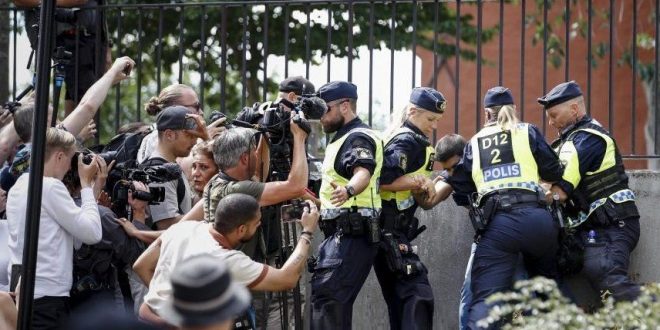29-07-2023
STOVKHOLM: A spate of Quran burnings in Sweden has badly affected the country’s image abroad and led to a deterioration of the security situation at home, security service Sapo has warned.
Many Muslim-majority countries have expressed outrage. Last week protesters set fire to Sweden’s embassy in Iraq after learning police in Stockholm had given permission for more book burning.
 For Swedes, the issue has thrown up a major dilemma, because at stake is a historic and fundamental right dating back to 1766.
For Swedes, the issue has thrown up a major dilemma, because at stake is a historic and fundamental right dating back to 1766.
“Sweden has one of the world’s strongest legal protections for freedom of expression,” says Marten Schultz, professor at Stockholm University’s faculty of law.
The Nordic nation also scrapped its blasphemy laws in the 1970s.
Its constitution guarantees the right to freedom of expression on any subject, including “expressions of opinion that question religious messages, or that can be perceived as hurtful to the believer” but its centre-right-led government is now considering possible changes to the laws that have allowed the Quran burnings in Stockholm to take place.
That is because police initially refused to allow two planned book-burnings earlier this year due to of the risk of making Sweden a “higher priority target for attacks”.
They had cited the Public Order law, or Ordningslag, as justification for the ban but then the courts overruled the  police, arguing that the security risks did not have a sufficiently clear connection to the planned gatherings or their immediate surroundings to refuse permission.
police, arguing that the security risks did not have a sufficiently clear connection to the planned gatherings or their immediate surroundings to refuse permission.
Under the law, gatherings can only be banned if they are a threat to public safety.
When permission was given to an Iraqi Christian refugee last week it was his second stint in a month, although he stopped short of burning the Quran.
Critics have pointed out that Sweden does have a law prohibiting incitement against ethnic groups, in place since 1949 in response to the Holocaust but experts say the Quran burnings targeted a book instead of people or individuals, so this reading of the law was not appropriate in the context of banning the gatherings.
“Freedom of speech is part of our legal culture,” Professor Schultz told the BBC. “It’s not just the law but a fundamental value” but it comes at a cost. (Int’l News Desk)
 Pressmediaofindia
Pressmediaofindia




